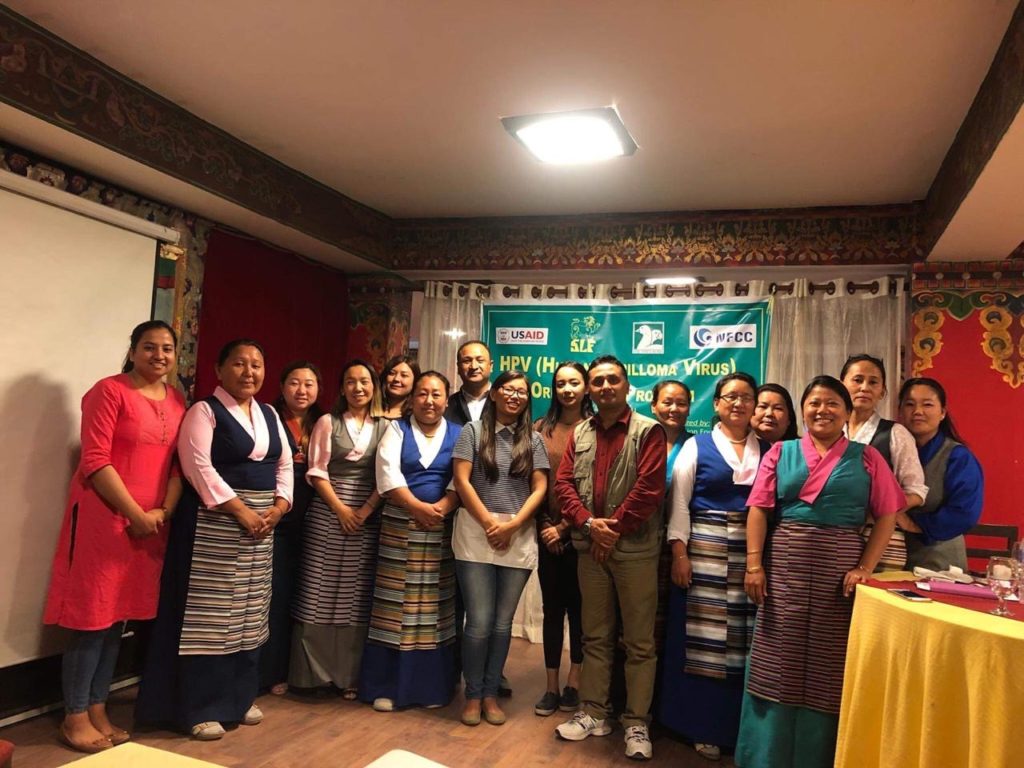
Refugee Health
There are approximately 12000 Tibetans living in the 12 refugee camps in Nepal. These refugees do not have an official status in Nepal as they are denied any form of paperwork identifying them as refugees. The absence of an identity document means the absence of rights where they are unable to have a job, a bank account, own property, travel or access anything in Nepal that requires an identity document. Access to healthcare in public sector is difficult rendering them vulnerable to the vagaries of unscrupulous private sector service providers. Since 2017, NFCC formally started working on Refugee health including access to GBV services. The work that NFCC does with Tibetan refugees in the refugee settlements are as follows:
- Capacity building of teachers and community health workers to raise awareness on Sexual and Gender Based Violence in their respective schools and communities.
- Establishing a response mechanism for GBV survivors in schools and settlements by linking them to the Government of Nepal’s services.
- Conducting safety audits in schools to build a safe school environment.
- Developing contextual communication materials on SGBV for the Tibetan communities.
- Building overall capacity of community health workers to raise awareness on pertinent health and report accurately.
- Conducting HPV vaccinations in schools.